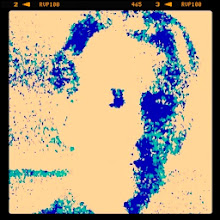Natalie Crawford reviews A Thousand Splendid Suns by Khaled Hosseini.
Afghanistan, as we know, is a complicated mess. But for many, myself included, this is often the beginning and end of our education. If it were not for the images seen on our evening news and the opinions of those indirectly connected to the conflict ‘over there’, we may not have this sensationalist view of a ‘backwards’ country with seriously outdated moral codes and ethics. Although A Thousand Splendid Suns does nothing to allay these ideas, it goes a hell of a long way to provide an education that I believe is seriously lacking.
I am quite happy to admit my ignorance to the situations suffered by so many. I knew nothing of the whys and wherefores of the current climate our own soldiers are thrown into. That is, until earlier this year. I was given a copy of The Bookseller of Kabul by Asne Seierstad which I devoured almost instantly. This then led me to Hosseini’s inaugural work The Kite Runner. Both books, in particular the latter, had me desperate for more – desperate to understand to a greater level the plight of this formerly ‘westernised’ world. Part of it was obviously due to the thirst for knowledge, but I am ashamed to say that another part of me was eager to quench a thirst for the tragic.
This is something I have never quite understood. Human nature seems to dictate that many of us are addicts of ‘car-crash’ scenarios; a taste of blood and terror. I am very much one of these people, my ears prick up at the prospect of reported deaths and evil on the news. Perhaps it is because my sugar coated, candy floss wrapped world is so far removed from anything so awful. Perhaps it is because my imagination cannot even begin to construct some of the experiences that real people in real places can go through; cannot comprehend the extent of damage one can withstand and still not break. And I know I am not alone in this.
I believe this is one of the reasons I was so swept up in A Thousand Splendid Suns. Hosseini tells the tale of two women, Mariam and Laila. Although very different in perspective and upbringing, both women are cursed with tragedy and tarred with a similar fate. The matter-of-fact prose lulls the reader from one horrendous situation to another without so much as a pause for breath, yet you do not feel bombarded by it. At no point did my brain kick in to say, “Enough now. Enough.” Instead, it eagerly pored over the pages, almost relishing the terrible experiences these women faced.
Even though so much of the book deals with terror, violence, torture, humiliation alongside very emotional events such as suicide, miscarriage and exploding body parts, no part of the story feels unreal. None of it feels unbelievable or extreme. The interwoven back drop of Afghanistan’s modern history submerges you directly into a world that is very, very real, making this book one of the most terrifying works of modern ‘horror’.
But what is truly amazing is Kahled Hosseini’s ability to teach about hope. This book is possibly one of the most heart wrenching novels I am ever going to read (I shed buckets!) but throughout it all, lying beneath almost unnoticed, behind every word, is a seed of hope. It is truly breathtaking. I still cannot work out exactly how he has managed this incredible feat considering the subject matter, but it is there. The sense of love and commitment, and that cooling breeze of hope and beauty eventually shines through so strong, that by the final page you are almost ready to begin the torment again.
This exceptional work is not only a lesson to all those budding authors in how to present complex emotions and situations, but also a lesson to us all about a country we seem to have misplaced. Hosseini does not bash you about the head with historical and cultural detail, but for me, that makes it all the more poignant. The detail is so subtle it is almost mundane. The plights of Mariam and Laila take centre stage, but when they are wrapped in a national sadness that cannot be broken, you begin to understand more of why our own country had to step in. It secretly provokes you into reaching your own conclusions on the conflict – my own edging towards a sense of failure and responsibility on the part of a certain ‘Western Alliance’. But, what would I know?
So now I feel really ashamed. How did I not know more about this ongoing madness before? With a sick fascination for the tragic and my own personal love of how the past has shaped our present, I simply cannot understand how I have such a gaping hole in my knowledge. But Hosseini’s novels have done much to shovel in the missing information. He has an extraordinary talent for gently taking you on a journey that does nothing to offend but honestly tells some of the potential horrors of Afghanistan. He has the ability to show us that despite all our best attempts, there is hope for human kind, hope for Afghanistan, hope for us all no matter how dark our days might get. But more than this, a hope that through his words this real and terrible life will not be confined to dusty tomes of unread history books, but be learnt from and allowed to breathe forever.
Natalie Crawford is a former school teacher, now at work on a children's novel set during the English Civil War. You can read more of her book and film reviews on her own blog, The Writer Side of Life




No comments:
Post a Comment